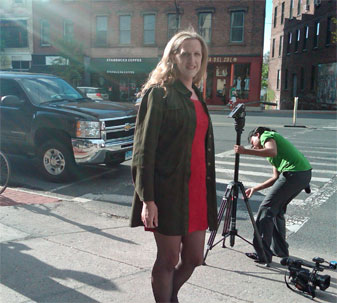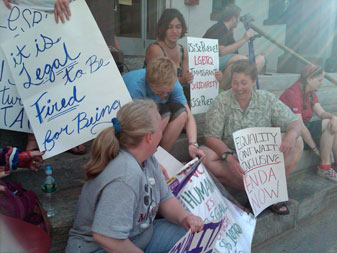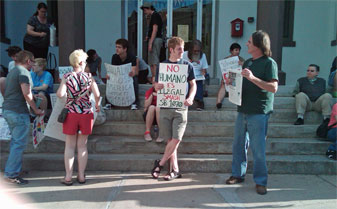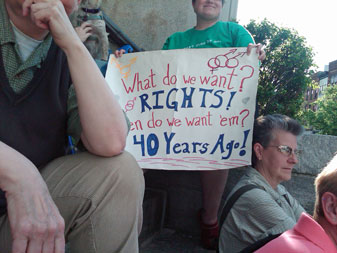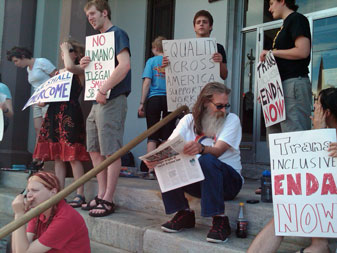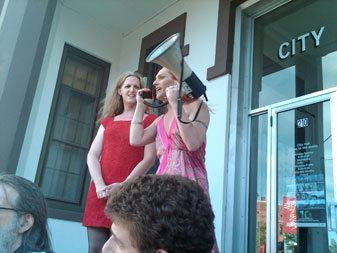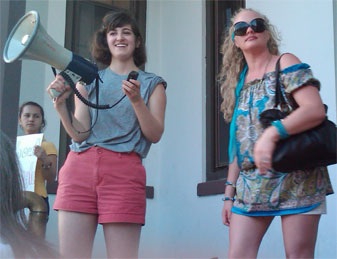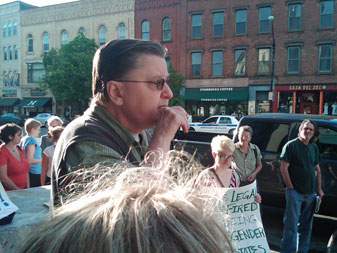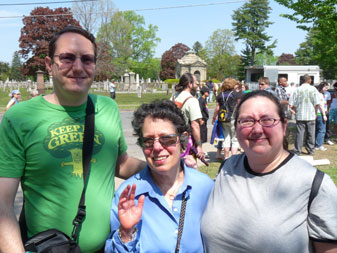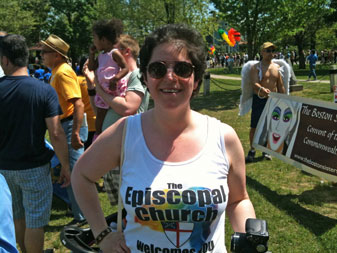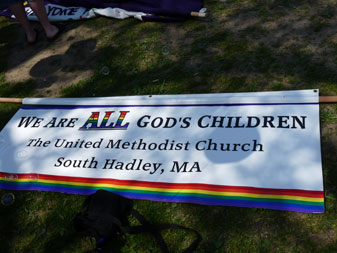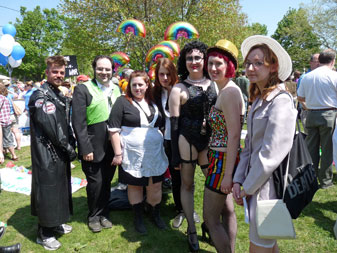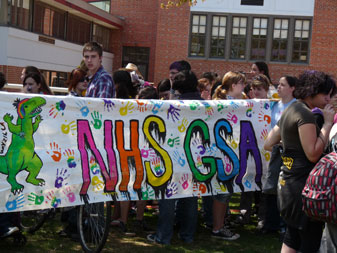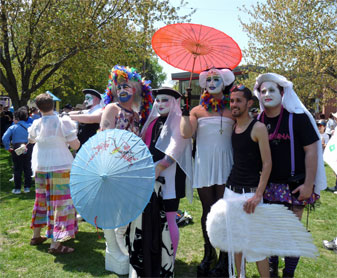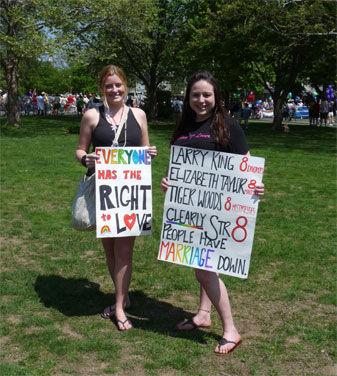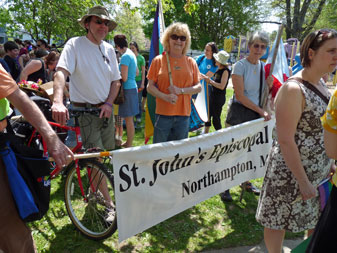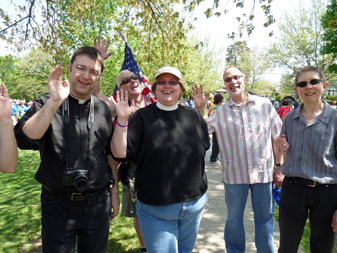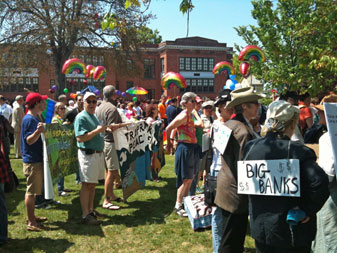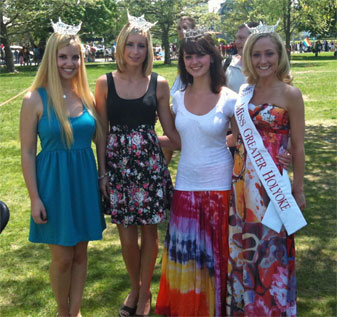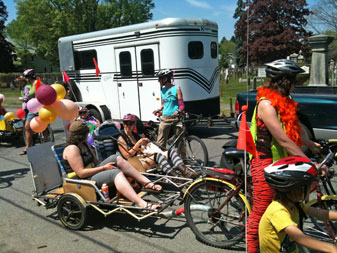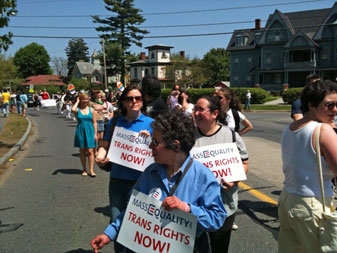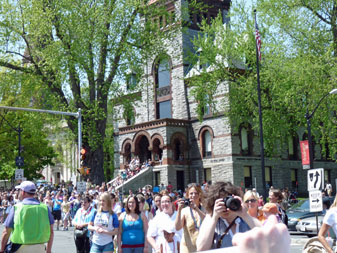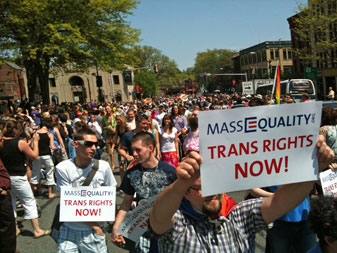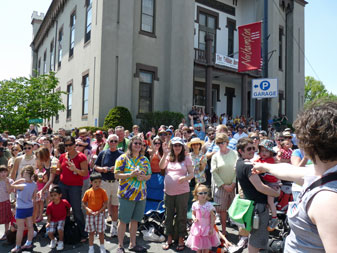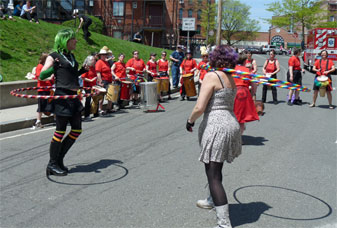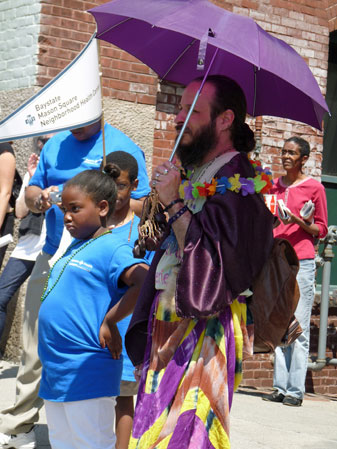CNN.com reported Monday on a study that concluded that children raised by lesbians were better-behaved than their peers. Naturally, I find this flattering, though some might say the results have worn off with age.
A nearly 25-year study concluded that children raised in lesbian households were psychologically well-adjusted and had fewer behavioral problems than their peers.
The study, published Monday in the journal Pediatrics, followed 78 lesbian couples who conceived through sperm donations and assessed their children’s well-being through a series of questionnaires and interviews.
Funding for the research came from several lesbian, gay, bisexual, and transgender advocacy groups, such as the Gill Foundation and the Lesbian Health Fund from the Gay Lesbian Medical Association.
Dr. Nanette Gartrell, the author of the study, wrote that the “funding sources played no role in the design or conduct of the study.”
“My personal investment is in doing reputable research,” said Gartrell. “This is a straightforward statistical analysis. It will stand and it has withstood very rigorous peer review by the people who make the decision whether or not to publish it.”
Gay parenting remains a controversial issue, with debates about topics including the children’s psychological adjustment, their parents’ sexual orientation and adoption restrictions.
Wendy Wright, president of the Concerned Women for America, a group that supports biblical values, questioned the legitimacy of the findings from a study funded by gay advocacy groups.
“That proves the prejudice and bias of the study,” she said. “This study was clearly designed to come out with one outcome — to attempt to sway people that children are not detrimentally affected in a homosexual household.”Gartrell started the study in 1986. She recruited subjects through announcements in bookstores, lesbian events and newspapers throughout metro Boston, Massachusetts; San Francisco, California, and Washington.
The mothers were interviewed during pregnancy or the insemination process, and additionally when the children were 2, 5, 10 and 17 years old. Those children are now 18 to 23 years old.
They were interviewed four times as they matured and also completed an online questionnaire at age 17, focusing on their psychological adjustment, peer and family relationships and academic progress.
To assess their well-being, Gartrell used the Child Behavior Checklist, a commonly used standard to measure children’s behavioral and social problems, such as anxiety, depression, aggressive behavior and social competence.
The answers were coded into a computer and then analyzed. This data was compared with data from children of nonlesbian families.
The results surprised Gartrell.
“I would have anticipated the kids would be doing as well as the normative sample,” she said. “I didn’t expect better.”
Children from lesbian families rated higher in social, academic and total competence. They also showed lower rates in social, rule-breaking, aggressive problem behavior.
The involvement of mothers may be a contributing factor, in addition to the fact that the pregnancies were planned, Gartrell said.
…
Read the rest of the article here .
I have just one objection to CNN’s reporting. Can we please not call the anti-homosexual position “Biblical values” without a qualifying phrase, as if there’s only one legitimate or mainstream interpretation of the Bible on this issue? That’s how Concerned Women for America uses the phrase, but it’s hardly uncontested.
Compare how major news outlets cover another equally controversial topic. Reporters understand that the phrase “partial-birth abortion” is a value-laden description of a medical procedure, crafted by its opponents to stir certain emotions. Instead of endorsing this description uncritically, the paper will say something like “the procedure that doctors call intact dilation and extraction, and opponents call partial-birth abortion.” The disagreement in nomenclature reflects a disagreement in values, and so an objective journalist will refuse to take sides by omission.
In the story above, a more accurate and neutral description could be “Concerned Women for America, a group that interprets the Bible to condemn homosexuality” or “…that opposes same-sex relationships, based on its interpretation of the Bible”.
